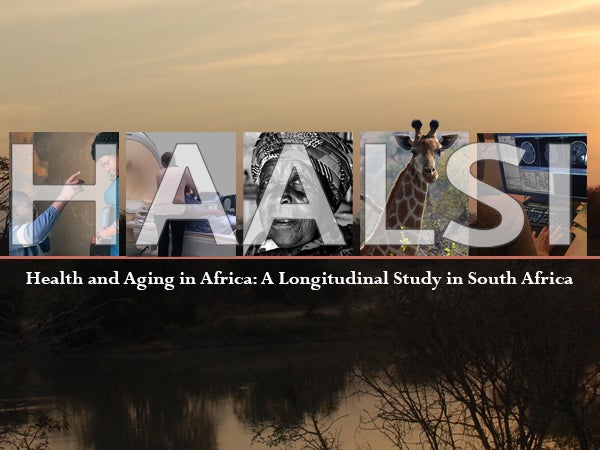Researchers from The Harvard Center for Population and Development Studies (HCPDS), the Harvard T.H. Chan School of Public Health, the University of the Witwatersrand, and the University of Cape Town have been awarded 27 million dollars from the National Institute on Aging (NIA) to further the collaborative program project Health and Aging in Africa: A Longitudinal Study in South Africa (HAALSI). This is the largest grant to be administered through the HCPDS.
Since 2013, HCPDS’ flagship project has been examining the demographic and epidemiologic transition taking place in South Africa, one of many countries whose population has experienced a boost in life expectancy thanks to the successful scale up of antiretroviral therapy (ART) in response to the HIV epidemic, as well as general socioeconomic and health care improvements. These gains in life expectancy, however, have meant that the newly aging population in this region has also experienced unprecedented levels of chronic, non-communicable diseases, such as cardiovascular and metabolic diseases, and dementia. With the number of people suffering from dementia globally projected to rise from 55 million (with over 60% living in low- and middle-income countries) to 78 million in 2030, and 139 million by 2050, HAALSI scientists plan to expand their focus on cognitive aging and dementia in this next 5-year phase of HAALSI.
